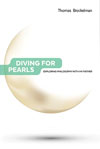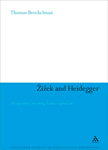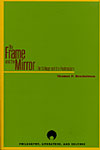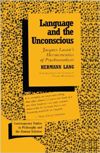Quick links
Part 1, Abstract and The End of Man
Part 2, Psychoanalysis in The Order of Things
Part 3, Seminar XIII and the object a
Part 4, Window not mirror: Las Meninas
Part 5, The Street: Lacan reads Balthus reading Velázquez
Part 6, The poetics of the window: truth of the analyst
Part 7, Conclusion, References, Photo Credits–You are here.
7 Conclusion, References, Photo Credits
Recall, from my earlier discussion, the cul de sac in which the Foucault of The Order of Things found himself; dedicated to challenging as deceptive the very idea of a single Western ‘‘history’’ unfolding over time and space, his analysis nonetheless seemed to suggest just such a single story occurring for and to a single subject. The term ‘‘finitude’’ marked the locus where this tension between project and the hermeneutic with which it is pursued comes to a head. In a sense, my point here is simply that what could only appear in Les Mots et les choses in a symptomatic manner—as the unresolved tension between ‘‘finitude’’ as remainder of a historicism to be overcome and the same ‘‘finitude’’ as marker for the very instability that defeats historicism in its rationalist presumption—emerges in Lacan’s Seminar as defining psychoanalysis itself. Indeed, one could go further down this road, since Foucault himself, in allowing the signifier ‘‘psychoanalysis’’ to mark the very place in his argument where the ambiguity of ‘‘finitude’’ emerges, seems to anticipate Lacan’s move. In Les Mots et les choses, we already find the name for that practice highlighted as containing the positive possibility today for the ‘‘human sciences’’; Lacan simply investigates what this ‘‘psychoanalysis’’ must be if it is to escape the imperative for a ‘‘death of man.’’
The answer to that demand comes in terms not directly of the ‘‘subject’’ of modernity but of an object implied by but missed in earlier accounts of modernity. Lacan’s account of representation and its subject differs from Foucault’s precisely because it turns on the enigmatic object, the object that equally either appears to a subject as anxious ontological incompletion or as the transcendental condition for apparent ontological completion. This is key; for neither position cancels out the necessity of the other; above all, this means that the ‘‘science’’ granted to the analyst cannot be seen as substitute or replacement for the destitute experience of the analysand. Lacan’s psychoanalytic theory, in demonstrating another object—a ‘‘partial object’’ that shifts between the analyst’s (objective) understanding of it and the analysand’s (subjective) experience (Lacan reminds us that the window looks at us)—also gives the lie to Foucault’s paradoxically historicist impulse in Les Mots et les choses. It suggests that all along the possibility for de-stabilization, for a challenge to modernist complacency, has stood within the constitution of the modern subject. We should give up the post-modernist idyll to which the Foucault of 1966 sometimes succumbed—the dream of a world ‘‘beyond’’ the subject of representation. Not as beyond or outside of representation, but in its innermost heart lies subversion of its limitations, of its mania for domination.
References
Alberti, Leon Battista. 1991. On Painting, translated by Cecil Grayson, with an introduction and notes by Martin Kemp. London: Penguin Books.
Dolar, M. 1998. Cogito as the subject of the unconscious. In Cogito and the
unconscious, ed. S. Žižek. Durham: Duke University Press.
Foucault, Michel 1966/1967. Les Mots et les choses. Paris: Gallimard. English Translation (1967), The Order of Things. New York: Vintage Books. All references from the English translation.
Freud, Sigmund 1915/53. The standard edition of the complete psychological works of Sigmund Freud, Vol. 14. Translated from the German under the general editorship of James Strachey. London: Hogarth Press.
Freud, Sigmund 1926/53. The standard edition of the complete psychological works of Sigmund Freud, Vol. 20. Translated from the German under the general editorship of James Strachey. London: Hogarth Press.
Lacan, Jacques 1973/1978. Le Séminaire de Jacques Lacan, Livre XI, ‘‘Les quatre concepts fondamentaux de la psychanalyse.’’ Texte e ́tabli par Jacques-Alain Miller), Paris: Seuil. English translation (1978) The four fundamental concepts of psychoanalysis (edited by Jacques-Alain Miller), New York: Norton.
Lacan, Jacques. 2004. Le Séminaire de Jacques Lacan, Livre X, ‘‘L’angoisse’’. Texte e ́tabli par Jacques- Alain Miller), Paris: Seuil.
Lacan, Jacques Unpublished. Transcript: Le Séminaire de Jacques Lacan, Livre XIII, 1965-1966, ‘‘L’objet de la psychanalyse.’’ Available at http://nosubject.com/Seminar_XIII. Page Citations refer to the original transcript. Unless otherwise notes English translations are from an unpublished text by Corman Gallagher. Accessible at http://www.lacaninireland.com/web/.
Weber, Nicholas Fox. 1999. Balthus: A biography. New York: Alfred A. Knopf.
Photo Credits
Diego Velázquez, Las Meninas. (1656, Museo del Prado, Madrid) Image permission of Superstock, #4266.
Diego Velázquez, Las Meninas, detail. Image permission of Superstock, #1899-33145.
Rene Magritte, The Human Condition (1933, National Gallery of Art, Washington, D.C.), with permission of the estate of Rene Magritte. Image permission of Superstock, #1158-2398.
Balthus, The Street (La Rue). (1933, Museum of Modern Art, New York), with permission of the estate of Balthus (Harumi Klossowska de Rola). Image permission of Superstock, #260-1048.
Albrecht Du ̈rer, Illustration from On Measurement. Image permission of Superstock, #463-7149.
Perspective illustration after, Peter de Hooch, A Woman Drinking with Two Men. (1658, NationalGallery, London). Image permission of Superstock, #1746-2988.
All other images are in the public domain.




 Language and the Unconscious: Lacan's Hermeneutics of Psychoanalysis
Language and the Unconscious: Lacan's Hermeneutics of Psychoanalysis

